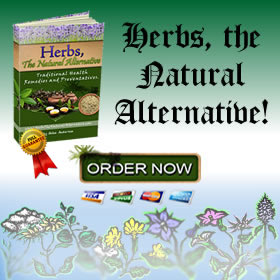Nettle: The Stinging Herb With Soothing Benefits
Imagine a plant that looks innocent enough, until it brushes against your skin and leaves you with an annoying stinging sensation. That’s nettle for you, the herb notorious for its prickly leaves. But here’s the twist: despite its less than friendly exterior, nettle actually holds a host of soothing benefits. From relieving allergies to aiding in joint pain, this prickly plant may just become your new favorite natural remedy. So, why not dive into the world of nettle and discover the surprising ways it can benefit your well-being?
What is Nettle?
Definition
Nettle is a versatile plant with a wide range of applications, both in traditional medicine and modern industries. It is known for its stinging hairs, which can cause an uncomfortable allergic reaction upon contact with the skin. Despite its sting, nettle has many health benefits and is recognized as a superfood due to its high nutritional value.
Scientific Name
Nettle belongs to the Urtica genus and is scientifically known as Urtica dioica. It is also commonly referred to as common nettle, stinging nettle, or just nettle.
Appearance
Nettle is a perennial plant that can grow up to three feet tall. It has heart-shaped leaves with serrated edges and small, greenish-white flowers. The stems and leaves are covered in tiny hairs that release chemicals when touched, causing a stinging sensation.
Nettle Sting and its Effects
Mechanism of Nettle Sting
The stinging sensation experienced when coming into contact with nettle is a result of tiny hollow hairs on the plant’s surface. These hairs contain chemicals like histamine, acetylcholine, and serotonin, which can cause an allergic reaction. When the hairs penetrate the skin, they inject these chemicals, triggering pain, itching, and inflammation.
Symptoms of Nettle Sting
The symptoms of nettle stings vary from person to person but commonly include a burning or tingling sensation, itching, redness, and raised bumps or hives on the affected area. In some cases, nettle stings can also cause more severe reactions such as difficulty breathing or anaphylaxis, especially for individuals with a preexisting allergy to the plant.
Duration and Intensity of Sting
The duration and intensity of a nettle sting depend on numerous factors, including the individual’s sensitivity, the area of skin affected, and the amount of exposure. Generally, the stinging sensation subsides within a few hours to a couple of days. However, in more severe cases, the discomfort can persist for a longer duration.
Nutritional Value of Nettle
Vitamins
Nettle is rich in various vitamins, including vitamin A, vitamin C, vitamin K, and several B vitamins such as riboflavin (B2), niacin (B3), and folate (B9). These vitamins play vital roles in maintaining overall health, supporting immune function, promoting healthy skin, and aiding in the production of red blood cells.
Minerals
Nettle also contains an abundance of minerals like iron, calcium, magnesium, potassium, and manganese. These minerals are essential for maintaining proper muscle and nerve function, supporting bone health, and assisting in various metabolic processes in the body.
Protein Content
Nettle is considered a good source of plant-based protein. It contains all nine essential amino acids, making it a valuable addition to vegetarian and vegan diets. Protein is crucial for building and repairing tissues, supporting immune function, and promoting satiety.
Health Benefits of Nettle
Anti-inflammatory Properties
Nettle possesses potent anti-inflammatory properties that may help reduce inflammation in the body. Compounds present in nettle, such as quercetin and histamine, have been shown to inhibit the release of inflammatory chemicals, potentially alleviating symptoms associated with conditions like arthritis, allergies, and inflammatory bowel disease.
Allergy Relief
Ironically, nettle, which is notorious for causing allergies with its stinging hairs, has been used for centuries to alleviate allergies. Traditional medicine practitioners believe that consuming nettle can help desensitize the body to environmental allergens, providing relief from symptoms such as sneezing, itching, and nasal congestion.
Urinary Health Improvement
Nettle has diuretic properties, meaning it promotes urination and helps eliminate toxins from the body. This diuretic effect may benefit individuals with urinary tract infections, kidney stones, or fluid retention. Additionally, nettle is often used as a natural remedy for urinary disorders, such as benign prostatic hyperplasia (BPH), by helping to reduce inflammation and alleviate associated symptoms.
Joint Pain Relief
Due to its anti-inflammatory properties, nettle has been studied for its potential to alleviate joint pain and stiffness associated with conditions like osteoarthritis and rheumatoid arthritis. Some studies suggest that applying nettle topically or taking it orally in supplement form may help reduce pain and improve joint function, although more research is needed in this area.
Blood Sugar Regulation
Several studies have indicated that nettle may play a role in regulating blood sugar levels. Compounds found in nettle leaves, such as lectins and flavonoids, have demonstrated the ability to enhance insulin sensitivity and decrease blood glucose levels. While more research is needed, these findings suggest that nettle could potentially be used as a complementary therapy for managing diabetes.
Traditional Uses of Nettle
Traditional Medicine Practices
Nettle has a long history of use in traditional medicine systems around the world. It has been utilized for a wide range of purposes, including treating ailments such as allergies, arthritis, urinary tract infections, and skin conditions. Traditional healers often prepared nettle as infusions, tinctures, or poultices to harness its medicinal properties.
Culinary Uses
Nettle leaves can be cooked and consumed in various culinary applications. The young leaves are often used as a nutrient-rich ingredient in soups, stews, teas, and pestos. They can also be blanched and used as a substitute for spinach in many recipes. Nettle has a unique earthy flavor that adds depth to dishes while providing a host of health benefits.
Textile and Crafts
Nettle fiber has been used for centuries to make textiles, ropes, and other crafts. The fibers from the stems of nettle plants are extracted and spun into yarn, creating a fabric known as nettle cloth. This durable and sustainable material has a rough texture but softens with wear, making it suitable for clothing and household items.
Nettle Tea and its Benefits
Preparation
Nettle tea can be made by steeping dried nettle leaves in hot water. To prepare nettle tea, simply place 1-2 teaspoons of dried nettle leaves in a cup of boiling water. Let it steep for 5-10 minutes before straining the leaves and enjoying the flavorful tea.
How to Use
Nettle tea can be consumed hot or cold, depending on personal preference. It can be sweetened with honey or a natural sweetener if desired. The tea can be consumed as is or mixed with other herbal teas for added flavor and benefits.
Health Benefits
Drinking nettle tea can provide numerous health benefits. It is often used as a natural remedy for allergies, as it may help reduce histamine production and alleviate symptoms like sneezing and itching. Nettle tea is also known for its diuretic properties, promoting healthy urinary function and aiding in detoxification. Additionally, nettle tea is thought to have anti-inflammatory and antioxidant effects, supporting overall health and well-being.
Nettle Extract and its Applications
Extraction Process
Nettle extract is obtained by soaking nettle plant parts, such as leaves or roots, in a solution (usually alcohol or oil) to extract the beneficial compounds. The plant material is typically crushed or ground before being mixed with the solvent. The mixture is then left to steep for a certain period, allowing the solvent to extract the desired properties. Afterward, the liquid is strained, leaving behind the nettle extract.
Medical and Cosmetic Applications
Nettle extract is used in various medical and cosmetic products. It is often incorporated into creams, lotions, and ointments due to its anti-inflammatory and soothing properties. Nettle extract may help calm skin irritations, reduce redness and itching, and promote overall skin health. In the medical field, nettle extract is sometimes used as a component in herbal remedies for conditions like arthritis and allergies.
Natural Dyeing
Nettle plants contain natural pigments that can be used as dyes for fabrics and fibers. The leaves and stems of nettle can be boiled or soaked to extract these pigments, which produce colors ranging from yellow to green and brown. Nettle dyes are prized for their sustainability and eco-friendly nature, making them a popular choice for those interested in natural dyeing techniques.
Nettle in Traditional Medicine
Nettle-based Remedies
Nettle has been used in traditional medicine systems, including Ayurveda and Traditional Chinese Medicine (TCM), for centuries. In Ayurveda, nettle is believed to possess properties that balance the doshas and purify the blood. Similarly, TCM incorporates nettle into formulas to tonify the kidneys and promote circulation.
Treatment for Different Conditions
In traditional medicine, nettle has been utilized to treat various conditions. It has been recommended for allergies, digestive disorders, urinary tract infections, anemia, and arthritis. Nettle is believed to have detoxifying, diuretic, and anti-inflammatory properties that contribute to its therapeutic effects on these ailments.
Safety Precautions
While nettle is generally considered safe for most people when consumed in moderate amounts, it can cause adverse effects in some individuals. It is advisable to consult with a healthcare professional before incorporating nettle into your diet or using it as a remedy, especially if you have underlying health conditions, are pregnant or breastfeeding, or are taking medications.
Nettle as a Superfood
Comparison with Other Superfoods
Nettle stands out as a superfood due to its remarkable nutritional profile. It is particularly notable for its high protein content, which rivals that of other plant-based sources like spinach and kale. Additionally, nettle is rich in vitamins, minerals, and bioactive plant compounds, making it a valuable addition to a balanced diet.
Incorporating Nettle into the Diet
There are various ways to incorporate nettle into your diet. Nettle leaves can be blanched and used as a substitute for spinach in recipes, or they can be added to soups, stews, and teas for added flavor and nutritional benefits. Nettle supplements in the form of capsules or powders are also available for those who prefer a more convenient option.
Potential Side Effects
While nettle is generally safe for consumption, some individuals may experience side effects. These may include digestive issues such as stomach upset or diarrhea, allergic reactions, or interactions with certain medications. It is important to start with small amounts of nettle and monitor your body’s response. If any adverse reactions occur, discontinue use and seek medical advice.
Nettle as a Sustainable Resource
Cultivation and Harvesting Methods
Nettle is a hardy plant that can be easily cultivated in various climates. It grows well in nutrient-rich soil and requires minimal maintenance, making it an ideal crop for sustainable farming practices. Nettle can be grown from seeds, cuttings, or transplants, and it thrives in both garden beds and containers.
Environmental Benefits
Nettle cultivation offers several environmental benefits. The plant has a deep root system that helps prevent soil erosion and improves soil structure. Additionally, nettle acts as a natural habitat and food source for beneficial insects and pollinators, contributing to biodiversity in agricultural landscapes.
Nettle in Permaculture
Nettle is a valuable plant to include in permaculture systems. Its nitrogen-rich leaves can be used as a nutrient-rich mulch or added to compost piles, enhancing soil fertility. Nettle’s tall growth also provides shade and support for companion plants, creating a diverse and resilient ecosystem.
Nettle, with its stinging hairs and soothing benefits, is a remarkably versatile herb. From its traditional uses in medicine and cuisine to its applications in cosmetics and textiles, nettle continues to play a significant role in various industries. Whether consumed as a tea, extract, or incorporated into recipes, nettle offers an array of health benefits and is an excellent addition to a sustainable and nutritious lifestyle. So the next time you encounter nettle in your garden or the wild, remember its potential to sting, but also its power to heal and nourish.


